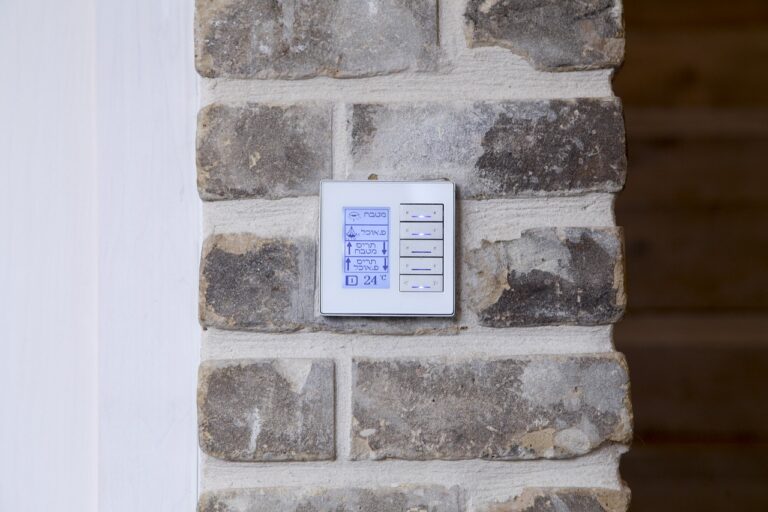Designing Driveways for Efficient Water Runoff: Betbhai.com exchange, Play99 exchange, Gold365 registration
betbhai.com exchange, play99 exchange, gold365 registration: As homeowners become increasingly aware of the impact of stormwater runoff on the environment, designing driveways that allow for efficient water runoff has become a priority. Traditional asphalt or concrete driveways are impermeable surfaces that prevent water from soaking into the ground. This can lead to water pooling, erosion, and pollution as runoff carries pollutants like oil, fertilizer, and pesticides into waterways.
Incorporating environmentally-friendly design principles into driveway construction can help mitigate these issues. By incorporating materials and techniques that allow water to infiltrate into the ground, homeowners can reduce runoff and support healthier waterways. Here are some tips for designing driveways for efficient water runoff:
1. Permeable Pavers: One of the most effective ways to improve water runoff is by using permeable pavers. These interlocking pavers allow water to seep through the joints and into the ground below. Permeable pavers come in a variety of materials, including concrete, clay, and recycled plastics, giving homeowners plenty of options to choose from.
2. Grass Pavers: Grass pavers are a great option for homeowners looking to blend their driveway into their landscaping. These pavers have open cells that can be filled with grass or gravel, allowing water to flow through while providing a stable surface for vehicles to drive on. Grass pavers are eco-friendly and can help reduce heat buildup in urban areas.
3. Green Driveways: A green driveway is a driveway that incorporates vegetation to help manage stormwater runoff. This can include using grass strips, planter boxes, or even a full green roof on top of a garage. Green driveways help absorb water, reduce runoff, and create a more visually appealing landscape.
4. Rain Gardens: Rain gardens are shallow depressions planted with native vegetation that help absorb and filter stormwater runoff. By strategically placing rain gardens near driveways, homeowners can capture and treat runoff before it reaches storm drains. Rain gardens also provide habitat for pollinators and add beauty to the landscape.
5. French Drains: French drains are a simple and effective way to manage water runoff on driveways. These drains consist of a perforated pipe buried in a gravel-filled trench. Water seeps into the gravel and is carried away from the driveway, reducing the risk of erosion and pooling. French drains can be an affordable solution for homeowners seeking to improve water management on their property.
6. Slope and Grade: Proper slope and grade are essential for efficient water runoff on driveways. Ideally, driveways should be sloped away from buildings and towards areas where water can infiltrate into the ground. Installing a crown in the middle of the driveway can help direct water towards the edges, preventing pooling.
7. Choose the Right Materials: When designing a driveway for efficient water runoff, it’s important to choose the right materials. Avoid using solid surfaces like asphalt or concrete, which can exacerbate runoff issues. Instead, opt for permeable materials like gravel, porous pavement, or grass that allow water to infiltrate into the ground.
8. Maintain Your Driveway: Regular maintenance is crucial for ensuring efficient water runoff on your driveway. Keep gutters and downspouts clear to prevent water from overflowing onto the driveway. Clean debris and dirt from permeable surfaces to maintain their effectiveness. Consider resealing pavers or regrading the driveway if you notice issues with water pooling.
Incorporating these design principles into driveway construction can help homeowners reduce the impact of stormwater runoff on the environment. By choosing permeable materials, implementing proper drainage techniques, and maintaining their driveways, homeowners can support healthier waterways and create a more sustainable landscape.
FAQs:
1. How much does it cost to install a permeable driveway?
The cost of installing a permeable driveway can vary depending on the materials used, the size of the driveway, and the complexity of the installation. On average, homeowners can expect to pay between $10 to $30 per square foot for a permeable driveway.
2. Will a permeable driveway require more maintenance than a traditional driveway?
Permeable driveways may require slightly more maintenance than traditional driveways, as debris can accumulate in the joints or cells of the permeable surface. However, regular cleaning and maintenance can help ensure the longevity and effectiveness of a permeable driveway.
3. Are there any government incentives for installing environmentally-friendly driveways?
Some local governments offer incentives or rebates for installing environmentally-friendly driveways, such as permeable pavers or rain gardens. Homeowners should check with their local municipality to see if any programs are available to help offset the cost of a sustainable driveway project.
4. Can I retrofit my existing driveway to improve water runoff?
Yes, it is possible to retrofit an existing driveway to improve water runoff. Options include adding permeable pavers, installing a French drain, or creating a rain garden alongside the driveway. Consulting with a landscaping professional can help determine the best solution for your specific driveway.
5. Will a permeable driveway be able to withstand the weight of vehicles?
Permeable driveways are designed to withstand the weight of vehicles, including cars, trucks, and SUVs. Proper installation and maintenance are key to ensuring the longevity and durability of a permeable driveway.
In conclusion, designing driveways for efficient water runoff is a critical step towards creating a more sustainable and environmentally-friendly landscape. By choosing permeable materials, implementing proper drainage techniques, and maintaining their driveways, homeowners can reduce the impact of stormwater runoff and support healthier waterways for future generations.







